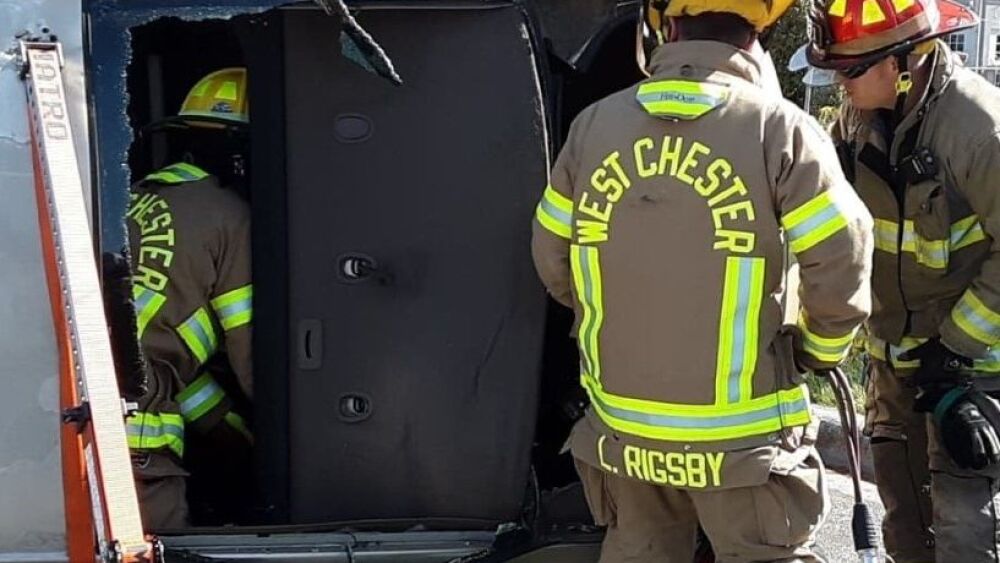By Trevor Frodge
Congratulations, you’ve made it! The fire department has promoted you, and you should be proud of your accomplishment!
Perhaps you passed a lengthy process with rigorous written testing and an assessment center like I did. Maybe you have been elected by your peers in a volunteer agency or appointed by the fire chief because you are considered the best for the position. In any case, you’ve been handed a tremendous opportunity filled with an extreme amount of responsibility, and it is yours.
Now what?
Shock sets in: You are in charge
I was promoted in April 2019, and I honestly felt ready and prepared. I had taken classes for years in leadership and tactics, completed Fire Officer 1 and 2, attended seminars and tradeshows, obtained certifications, and worked my way up.
Then I received the best news of my career: I was being promoted. Then the shock hit, maybe in the same ways the shock will hit you, that I might not be as prepared as I thought.
The shock comes from the realization that this is for real. That you have a responsibility to yourself, your crew, your organization and the citizens you’ve sworn to protect. You are now the conduit of information through the chain of command, and the glue that holds your team together. You are the team leader, fire officer, coach, mentor, and supervisor.
If you haven’t taken the time to truly evaluate the position, you should start right now. There is a different mindset to being a leader, a new approach to same situations, because that is what is expected and demanded of your crew and organization. You are no longer looking down the hoseline at the fire, but now maintaining a wide situational awareness while ensuring crew continuity and accountability. You are the safety officer, working boss and team member in most cases. Everyone is looking to you, and the pressure can be intense.
There is a ton of information on leadership available via articles, books, podcasts, videos and social media, and all of that material is great. Much of the information is coming from chiefs and higher-ups, providing great insight, but the high-level nature of the information can be lost on a new fire officer. With that in mind, I want to help by sharing some discoveries I’ve made in my short time in the seat – from one new fire officer to another.
Tactical tools: Focus on your response area
Tactics are the sexy part of the job, with our ability to quickly make life-saving decisions at all hours of the day and night. We must be skilled at reading a building and the fire problem, conducting a good 360 survey, and putting all of that information together in split-second time to protect occupants from fire. Unfortunately, this is the least common part of the job, so we must learn to make up for that.
First, trust yourself and your judgment. The organization believes in you to make a good decision, and many organizations test that ability through some type of fireground scenario. You know what you are doing, so take a breath, read the scene, and deploy your resources to save lives. Whether that is interior attack, exterior attack, defensive vs. offensive, it is your fire, so go with what you believe to be right.
If you are weak on tactics, get into the books. Seek expert guidance from other fire officers, internally and externally, within your organization. I would caution from reading too much into the large urban-area departments unless that is the makeup of your running area. I work in a suburb in Ohio with a three-person engine crew, so my tactics will vary much differently from Flatbush, Brooklyn, New York. There is value in urban fire attack, but you must be realistic with what your staffing levels and equipment are.
Decision-making: Know when to move fast and when to slow down
You would not have gotten to this point in your career if you couldn’t make a decision. The key is to make a decision and go with it.
Most of our decisions are not truly life and death, although with many of our decisions, we lack the time to evaluate and set a plan. Be brave and be decisive. If you make a bad call, learn from it. Be objective, and humble yourself that bad decisions will sometimes be made.
Ensure that your decisions do not jeopardize the integrity of your character, crew or organization, that they are in the best interests of the public, and that they fit the confines of the incident or situation presented.
While I haven’t mentioned safety, safety must be a primary concern, and all of our actions should be driven by safety. I recognize that circumstances sometimes mean we aren’t making “safe” decisions. Risking your life for others is inherently unsafe. The key is to train as a crew, train on the hard stuff, and be prepared be as safe and competent a crew as you can to get the job done.
While many decisions are split-second, such as those that occur during size-up, fire attack or rescue, many of our decisions allow for time to evaluate. This is definitely a learned skill – to be able to slow down, read the situation, gather information and then set a course of action. This is especially true of interpersonal relationships and discipline. Take the time to obtain a good read on the problem and get an objective look at the circumstances surrounding the issue being presented. Don’t snap to a decision too quickly, especially in personnel-related matters.
Also, consider if you can delegate some decision-making authority to your firefighters. Use this tactic with caution, though, as too much delegation can make you look weak, lazy and incompetent. Used properly, delegation can prove to be a terrific empowerment tool for grooming firefighters for further promotional opportunities.
Leadership lessons: Lead by example
As a leader, your job is to lead.
There are many different models of leadership, and I encourage you to take leadership classes through the National Fire Academy and local institutions. If you haven’t had the training to lead, it is never too late to learn.
Lead from the front, but understand that this doesn’t happen overnight. Your crew will watch your words, actions and mannerisms. If you, for instance, don’t follow your department’s uniform policy, how can you be expected to discipline a subordinate for the same thing? You’ve been elevated to a higher position and, as such, must be more accountable and professional than before.
It is your sworn duty to coach, mentor and train your people. Discover the strengths and weaknesses within your crew and test those limits to improve on your operational readiness.
Undoubtedly, you have weaknesses, too, so don’t be afraid to expose those and work on them. You were promoted to lead and make decisions, but not necessarily to be an expert in every single thing that we may encounter. Find those experts within your crew and grow them. I highly encourage you to research servant leadership and see how you can apply it to your team, and I especially recommend books by Simon Sinek and Jocko Willink with Leif Babin, specifically Extreme Ownership.
Finally, and perhaps most importantly, you’ve worked for good officers and you have worked for bad officers. Find a mentor in the good ones, and evaluate what made the others so bad. Then, decide how you are going to be.
Enjoy the ride!
It’s a long ride in the right seat, and worth every step of the way. You were promoted for your abilities and are trusted and valued. Treat your people right, build trust and respect, train like your lives and jobs depend on it, and enjoy the ride.
About the author
Trevor Frodge is a fire lieutenant with the West Chester Fire Department in suburban Cincinnati, Ohio, currently assigned to one of two rescue engines. He is a nationally registered paramedic, fire and EMS instructor, and fire inspector. Frodge is a member of the Butler County Technical Rescue Team, as well as a Hazardous Materials Specialist for Ohio Task Force 1.













